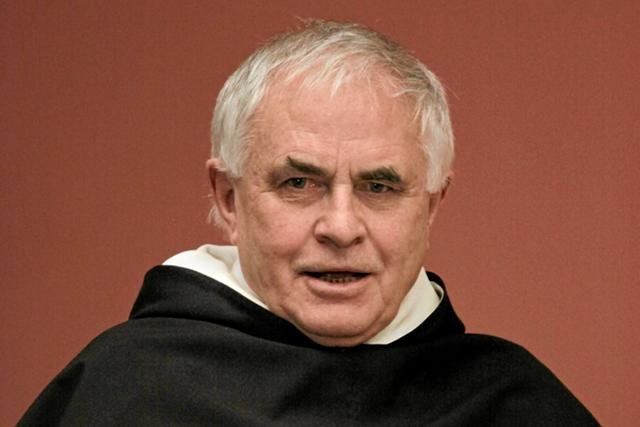ABOUT PROPOSED CHANGES TO POLAND’S ABORTION LAWS
We, the undersigned, are Catholics who respect the Church’s moral stance against abortion. We are writing to you with a request to engage in dialogue and reflection about the possible consequences of criminalizing abortion in Poland.
We uphold the sanctity of all human life, including the right to life of women and their unborn children. However, we also acknowledge that sometimes women and girls face agonizing decisions about whether or not to continue with a pregnancy that is the consequence of an act of sexual violence; that poses a serious threat to their own health, or that would result in the birth of a profoundly disabled or terminally ill child. While we respect those who decide to continue with such a pregnancy, we do not believe that this decision can be imposed upon them through moral coercion, and far less through the force of law. In our view, the latter constitutes a violation of a woman’s freedom of conscience and personal dignity, and it runs counter to the Catholic tradition’s distinction between morality and legality. The law should not be used to control a person’s moral life, except when that person’s behaviour poses a threat to society.
The Second Vatican Council’s 1965 Declaration on Religious Freedom, Dignitatis Humanae, affirms the primacy of conscience and the right to “immunity from external coercion as well as psychological freedom … even [for] those who do not live up to their obligation of seeking the truth and adhering to it.” (DH 2)
While we recognize the distinction between freedom from coercion to act against one’s conscience (which is unconditional), and freedom to act in accordance with one’s conscience (which can be restricted if the exercise of such freedom constitutes a threat to the common good), we believe that the unique character of the conflicts posed by pregnancy justifies the application of this principle in its former, unconditional sense in certain circumstances. Moreover, the use of the Church’s teaching authority to call for a change in law makes it irrelevant in this situation to distinguish between respect for freedom of conscience in matters of religion, and respect for freedom of conscience in a more universal sense. The law affects the freedom of all Polish citizens, and not only of Catholics.
We understand that Poland already has laws restricting abortion to situations when a woman’s life or health would be endangered by the continuation of a pregnancy, when the pregnancy is the result of a criminal act such as rape or incest, or when the foetus is seriously malformed or terminally ill. We are aware that under existing Polish law it is medical assistants who perform illegal abortions who are subject to legal penalties, and not the women who have the abortions. We are concerned that even under existing law, fear of prosecution might prevent doctors from agreeing to perform legal abortions, or might inhibit their willingness to undertake prenatal tests which could diagnose serious foetal conditions some of which can be treated in the womb, but some of which might under current law permit abortion. However, despite this reservation, we accept that the present law goes some way towards addressing the concerns we express above with regard to balancing potential conflicts between freedom of conscience and the common good.
We understand that the Presidium of the Polish Bishops’ Conference issued a statement to be read in churches across Poland on Sunday April 3 rd , a day now known as Mercy Sunday. This was the day before the Feast of the Annunciation and the Day of the Sanctity of Life, which this year were moved from 25th March to avoid coinciding with the Easter celebrations. We are mindful that, when God chose Mary to become the mother of His Son, He did so not by force or compulsion but by invitation and request. Mary was free in deciding whether or not to conceive a child. Many women and girls do not enjoy such freedom.
You argue in your statement that the conditions laid out in the abortion law of 1993 should not be regarded as definitive. You are calling for believers and unbelievers alike to support a move towards the total prohibition of all abortion and the full legal protection of the rights of the unborn, to mark the jubilee year of the 1050th anniversary of the baptism of Poland. You also ask parliamentarians and governors to propose laws and to initiate programmes that support the parents of children who are sick, disabled or conceived by rape. You ask all Poles to pray for the full protection of human life from conception to natural death both in Poland and beyond. Your statement needs to be read in conjunction with a bill calling for similar measures – i.e. the outlawing of all abortions – proposed by the civil initiative, “ Stop aborcji ”.
We agree that principled opposition to abortion must include active measures to support parents – including single mothers – who are struggling to bring up children who are ill, disabled, or were conceived through acts of violence or force. However, we also note that many Polish citizens, including many practising Catholics, have expressed outrage and have held demonstrations in protest against any move to further restrict Polish women’s access to abortion. Some find it difficult to reconcile their Catholic faith with such draconian measures against girls and women who are often in desperate situations. We are concerned that any woman who seeks an abortion and anybody who assists her in obtaining one faces a possible prison sentence of between three months and five years. This criminalization of those who may be victims of violence or who may have made a deeply distressing decision to abort in tragic circumstances seems to betray the call to mercy and compassion which Pope Francis insists must be at the heart of the Gospel message.
We appreciate the complex ethical challenges involved in any intentionally abortive act. However, we also believe that our Catholic faith calls us to be attentive to suffering in all its forms, and to respond with trust in the mercy, forgiveness and compassion of God when faced with profound moral dilemmas that offer no clear solution. In situations where abortion is deemed necessary – such as those currently permitted under Polish law – we believe that access to early, safe and legal abortion is essential. Making abortion illegal does not save the lives of unborn children. It kills women who would rather risk death than carry an unwanted pregnancy to term.
Finally, there is a body of evidence to show that the best way to prevent abortion is to respect women’s human dignity and freedom of conscience with regard to reproductive decisions, by guaranteeing access to reliable methods of birth control. To deny such access and to criminalize abortion as well seems to instrumentalize women as reproductive bodies rather than as full and equal human beings made in the image of God.
We thank you for taking the time to read this. We hope that your response will be to open a forum for dialogue between the bishops and the women who are most affected by such laws and campaigns.




Leave A Comment
You must be logged in to post a comment.